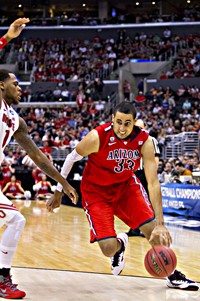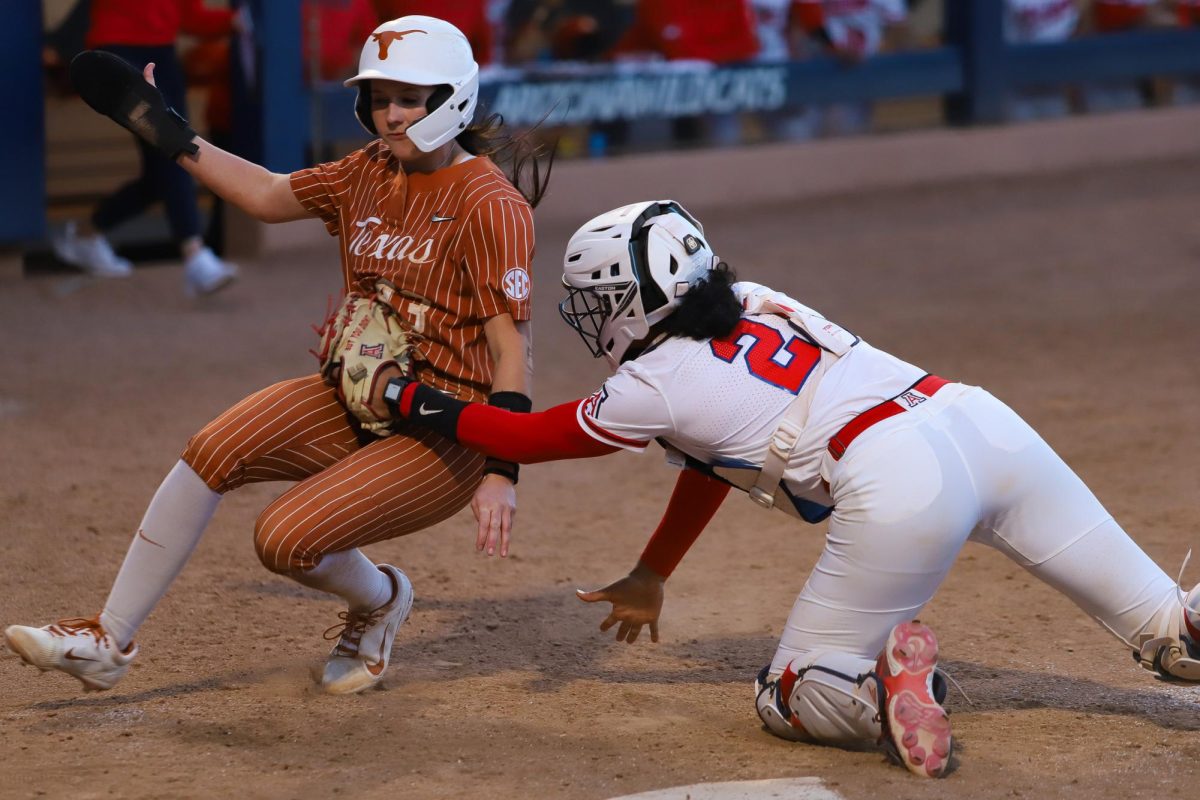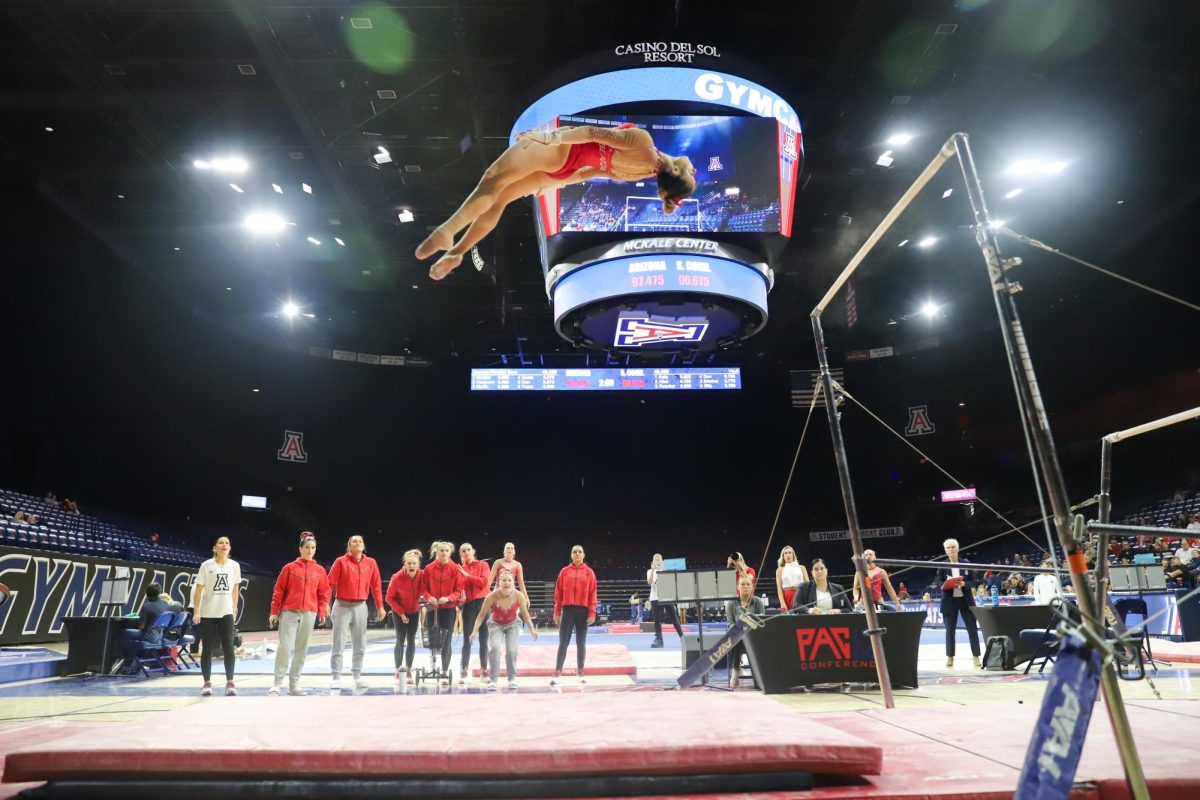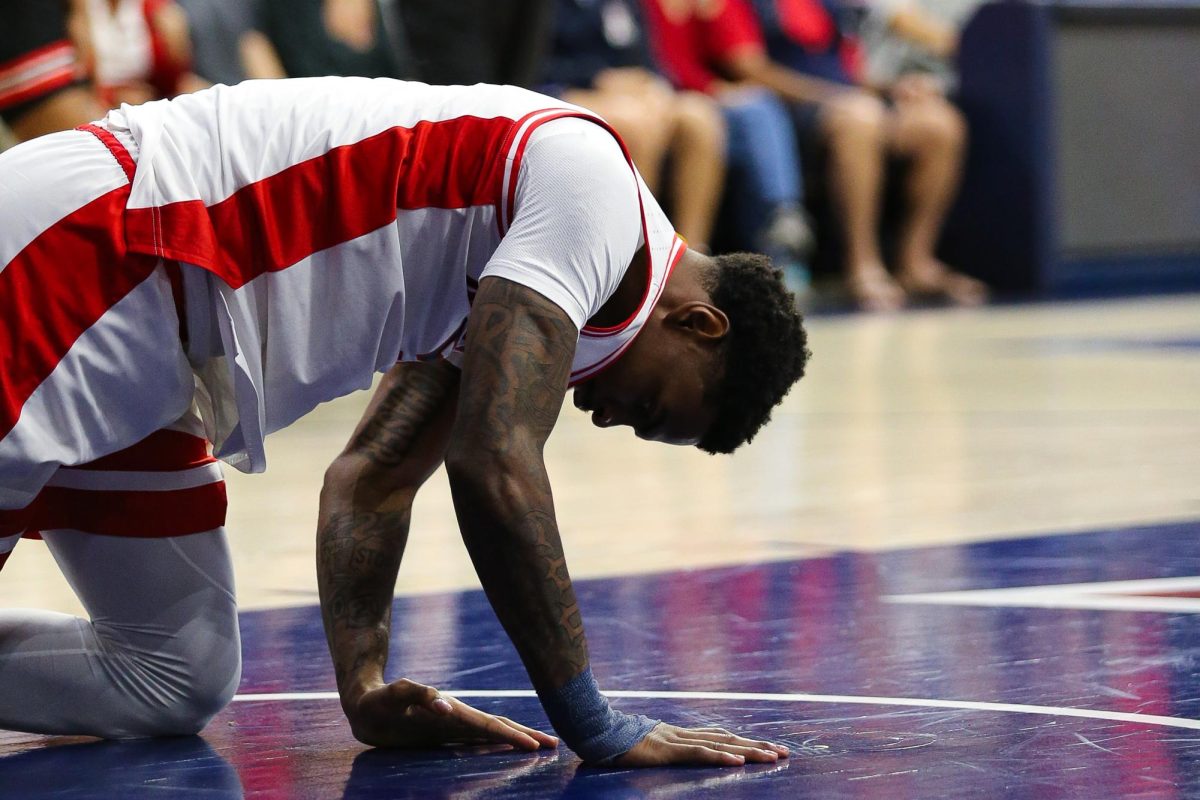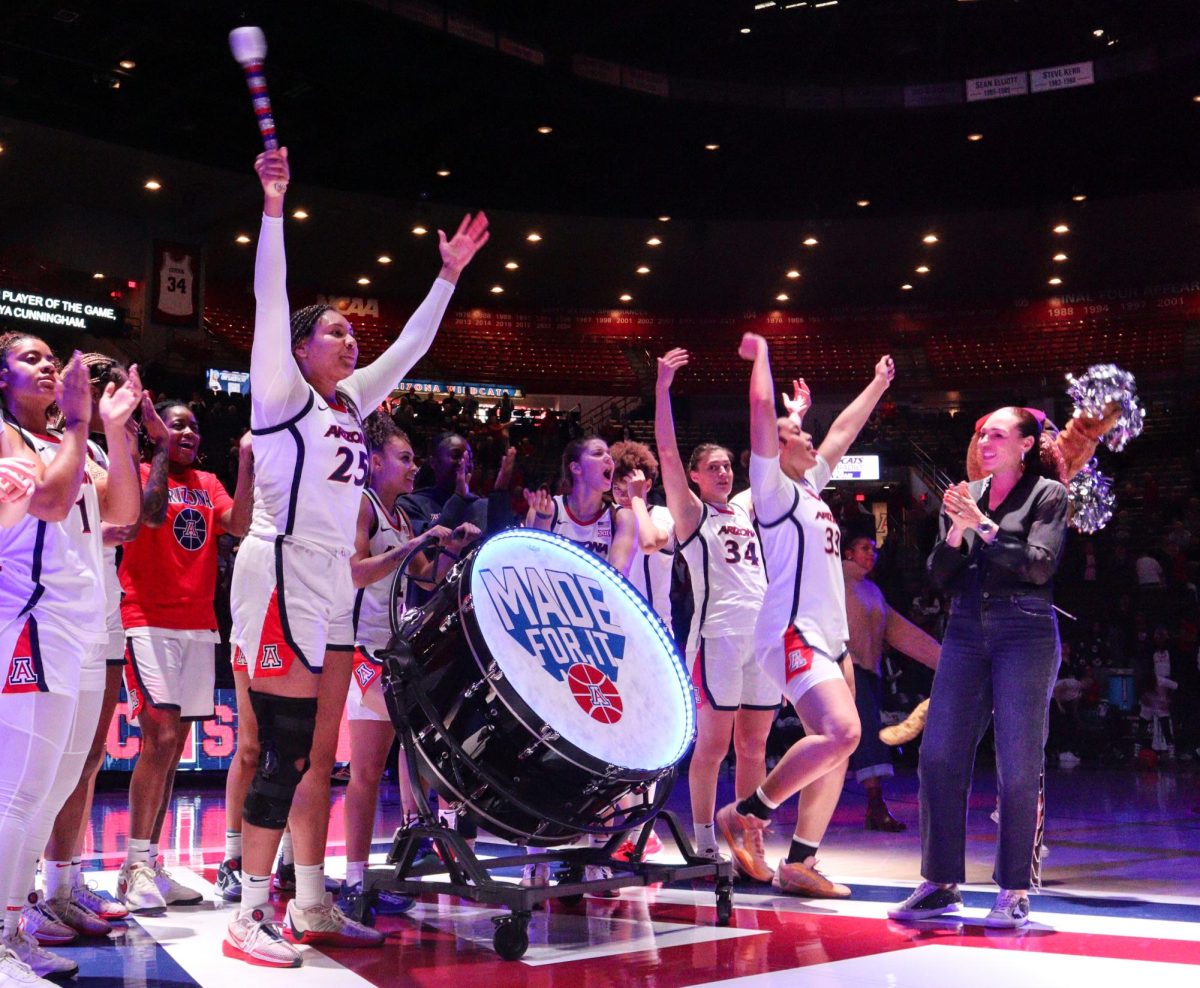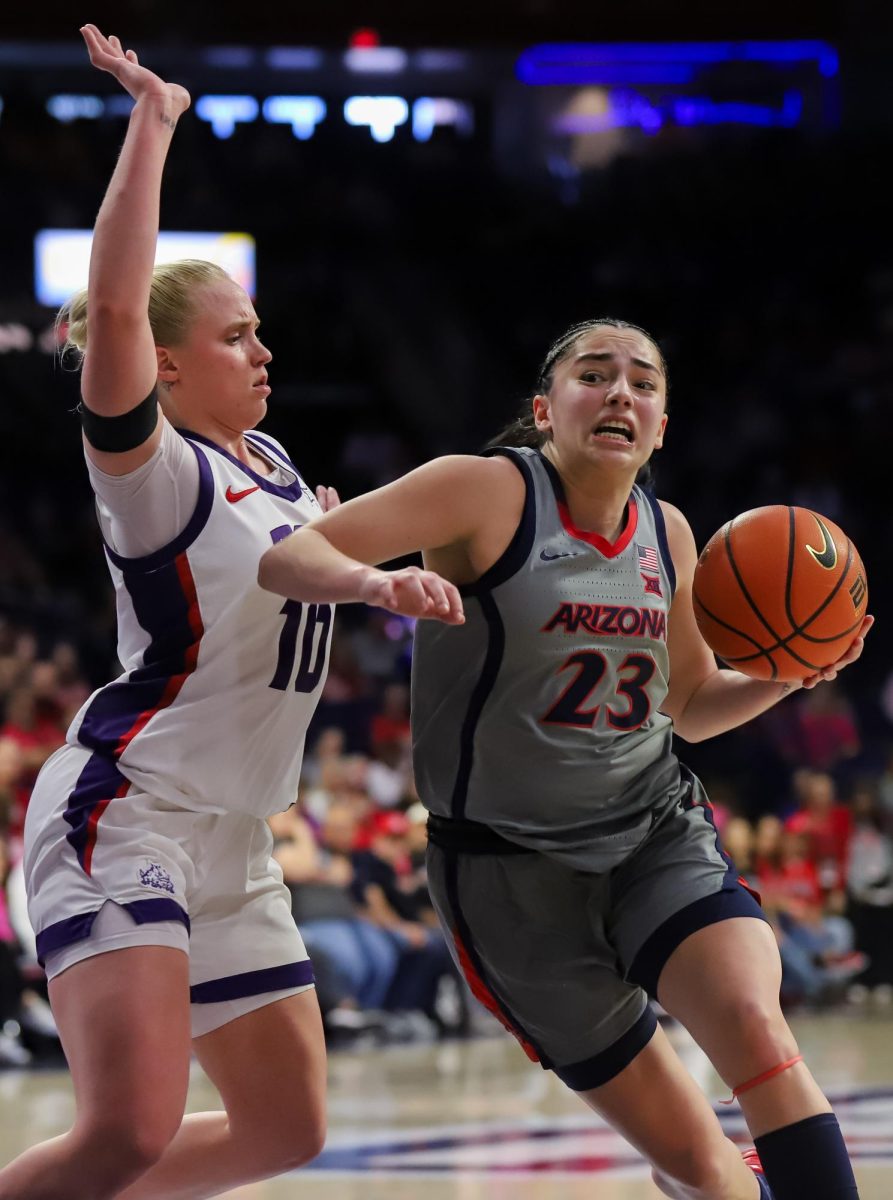When news broke in mid-April that freshman forward Grant Jerrett was leaving Arizona to enter the NBA draft, the most immediate reaction was — him?
Sure, the Wildcats had plenty of pro talent on the roster and have even more coming in with five-star forward Aaron Gordon. And when the trio of freshmen bigs came to Tucson, it was with the understanding that each of the three would eventually bolt early for greener pastures.
But that was when each player had boundless potential. Not after they (ahem, Jerrett) averaged 17.8 minutes and 5.2 points per game off the bench for a No. 6 seed in the NCAA tournament. It was a baffling decision by Jerrett, even with Gordon committing to the UA two weeks prior and clogging up the frontcourt.
Basically Jerrett bet against himself — admitting that he couldn’t earn enough playing time in Sean Miller’s rotation — while betting on himself that he’d be an NBA draft pick despite being on zero teams’ draft radars at the time. That’s not exactly what a Vegas sharp would call a “good bet.”
Sometimes, though, it’s better to be lucky than good and Jerrett’s decision paid out as well as he ever could have hoped for.
After sitting outside even the furthest reaches of mock drafts early on, Jerrett quickly rose up the boards and was eventually snatched by the Trail Blazers at the 40th pick before they promptly traded him to Oklahoma City.
You might be asking, how is going in the mid-second round to a team that drafted two big men (center Steven Adams and forward Andre Roberson) before him good fortune? It’s simple — he was drafted to a team that clearly wants him.
As a second-round pick, Jerrett isn’t guaranteed a contract. The fact that the Thunder traded cash to get his rights from Portland shows they’re clearly interested in signing him. For a player in that range, he’ll likely get league minimum around $500,000.
Oklahoma City also has shown it likes projects, playing draft-bust Hasheem Thabeet 11.7 minutes per game and loading up on prospects like Baylor’s Perry Jones. With a wealth of young talent (and since the Thunder are one of the NBA’s top teams), Jerrett will likely see a lot of action in the D-League next year.
Even if it’s with the Tulsa 66ers, Jerrett will still get paid his NBA contract and can be sent up or down whenever the Thunder choose.
As unappealing as that sounds, and as dumb as the initial decision to leave the UA first seemed, Jerrett actually made the right choice.
With Gordon coming to Tucson, the frontcourt minutes obviously shrunk for lesser players. Of course most of those who covered the Wildcats assumed that meant forward Angelo Chol would transfer (and he eventually fulfilled that prophecy).
It looks like Jerrett too was afraid of his minutes getting slashed, and if that was the case, then declaring for the NBA Draft was his only option.
Playing less than 10 minutes a game next season would’ve ruined his stock; transferring would’ve been even worse. Instead Jerrett took the leap, made the right choice for himself. He also ruined his Arizona legacy.
But, with a nice little pay day coming his way, I don’t think he’ll lose any sleep.
Jerrett’s decision to leave obviously hurt Arizona’s depth, but Miller’s squad is still loaded. Some fans undoubtedly were upset, but with such a winning program, fans have short memories.
Just ask someone about Marcus Williams.
The former Arizona guard/forward pulled a Jerrett back in 2007, bolting for the NBA after his sophomore season. Williams led Arizona in scoring (16.6 points) and was second in rebounds (6.7), earning All-Pac-10 First Team nod, but he was overshadowed by freshman phenom Chase Budinger.
Arizona had an early first round exit in the tournament, but with two five-stars coming in (Jerryd Bayless and Jamelle Horne), it looked like Arizona would be primed for a deep run — the perfect chance for Williams to prove his credentials on the big stage.
Instead, Williams curiously left for the NBA. He was picked 33rd overall and only played in 13 NBA games before going overseas. He also got banned by the Chinese Basketball Association for cannabis use in 2012, but that’s another story.
Jerrett didn’t even have the college success of Williams, but at least he left when his stock was high. And as Williams proved, even if you spurn your fans and then crash and burn in the NBA, you’ll quickly be forgotten.
Neither Jerrett nor Williams will have their jerseys retired in McKale Center.
But Jerrett shouldn’t care. He’s on the Thunder now.



